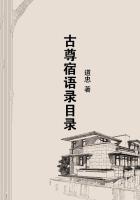I DO not mean to recount all the misunderstandings which existed between my father and Turgenieff, which ended in a complete breach between them in 1861. The actual external facts of that story are common property, and there is no need to repeat them. [17] According to general opinion, the quarrel between the two greatest writers of the day arose out of their literary rivalry.
[17] Fet, at whose house the quarrel took place, tells all about it in his memoirs. Tolstoy dogmatized about lady-like charity, apropos of Turgenieff's daughter.
Turgenieff, in a fit of nerves, threatened to box his ears.
Tolstoy challenged him to a duel, and Turgenieff apologized.
It is my intention to show cause against this generally received opinion, and before I come to Turgenieff's visits to Yasnaya Polyana, I want to make as clear as I can the real reason of the perpetual discords between these two good-hearted people, who had a cordial affection for each other--discords which led in the end to an out-and-out quarrel and the exchange of mutual defiance.
As far as I know, my father never had any serious difference with any other human being during the whole course of his existence. And Turgenieff, in a letter to my father in 1865, wrote, "You are the only man with whom I have ever had misunderstandings."
Whenever my father related his quarrel with Ivan Sergeyevitch, he took all the blame on himself.
Turgenieff, immediately after the quarrel, wrote a letter apologizing to my father, and never sought to justify his own part in it.
Why was it that, as Turgenieff himself put it, his "constellation" and my father's "moved in the ether with unquestioned enmity"?
This is what my sister Tatyana wrote on the subject in her article "Turgenieff," published in the supplement to the "Novoye Vremya," February 2, 1908:
All question of literary rivalry, it seems to me, is utterly beside the mark. Turgenieff, from the very outset of my father's literary career, acknowledged his enormous talents, and never thought of rivalry with him. From the moment when, as early as 1854, he wrote to Kolbasina, "If Heaven only grant Tolstoy life, I confidently hope that he will surprise us all," he never ceased to follow my father's work with interest, and always expressed his unbounded admiration of it.
"When this young wine has done fermenting," he wrote to Druzhenin in 1856, "the result will be a liquor worthy of the gods." In 1857 he wrote to Polonsky, "This man will go far, and leave deep traces behind him."
Nevertheless, somehow these two men never could "hit it off" together. When one reads Turgenieff's letters to my father, one sees that from the very beginning of their acquaintance misunderstandings were always arising, which they perpetually endeavored to smooth down or to forget, but which arose again after a time, sometimes in another form, necessitating new explanations and reconciliations.
In 1856 Turgenieff wrote to my father:
Your letter took some time reaching me, dear Lyoff Nikolaievich. Let me begin by saying that I am very grateful to you for sending it to me. I shall never cease to love you and to value your friendship, although, probably through my fault, each of us will long feel considerable awkwardness in the presence of the other. . . . I think that you yourself understand the reason of this awkwardness of which I speak. You are the only man with whom I have ever had misunderstandings.
This arises from the very fact that I have never been willing to confine myself to merely friendly relations with you. I have always wanted to go further and deeper than that; but I set about it clumsily. I irritated and upset you, and when I saw my mistake, I drew back too hastily, perhaps; and it was this which caused this "gulf" between us.
But this awkwardness is a mere physical impression, nothing more; and if when we meet again, you see the old "mischievous look in my eyes," believe me, the reason of it will not be that I am a bad man. I assure you that there is no need to look for any other explanation. Perhaps I may add, also, that I am much older than you, and I have traveled a different road. . . . Outside of our special, so-called "literary" interests, I am convinced, we have few points of contact. Your whole being stretches out hands toward the future; mine is built up in the past. For me to follow you is impossible. For you to follow me is equally out of the question.
You are too far removed from me, and besides, you stand too firmly on your own legs to become any one's disciple. I can assure you that I never attributed any malice to you, never suspected you of any literary envy. I have often thought, if you will excuse the expression, that you were wanting in common sense, but never in goodness. You are too penetrating not to know that if either of us has cause to envy the other, it is certainly not you that has cause to envy me.
The following year he wrote a letter to my father which, it seems to me, is a key to the understanding of Turgenieff's attitude toward him:
You write that you are very glad you did not follow my advice and become a pure man of letters. I don't deny it; perhaps you are right. Still, batter my poor brains as I may, I cannot imagine what else you are if you are not a man of letters. A soldier? A squire? A philosopher? The founder of a new religious doctrine?
A civil servant? A man of business? . . . Please resolve my difficulties, and tell me which of these suppositions is correct.
I am joking, but I really do wish beyond all things to see you under way at last, with all sails set.













